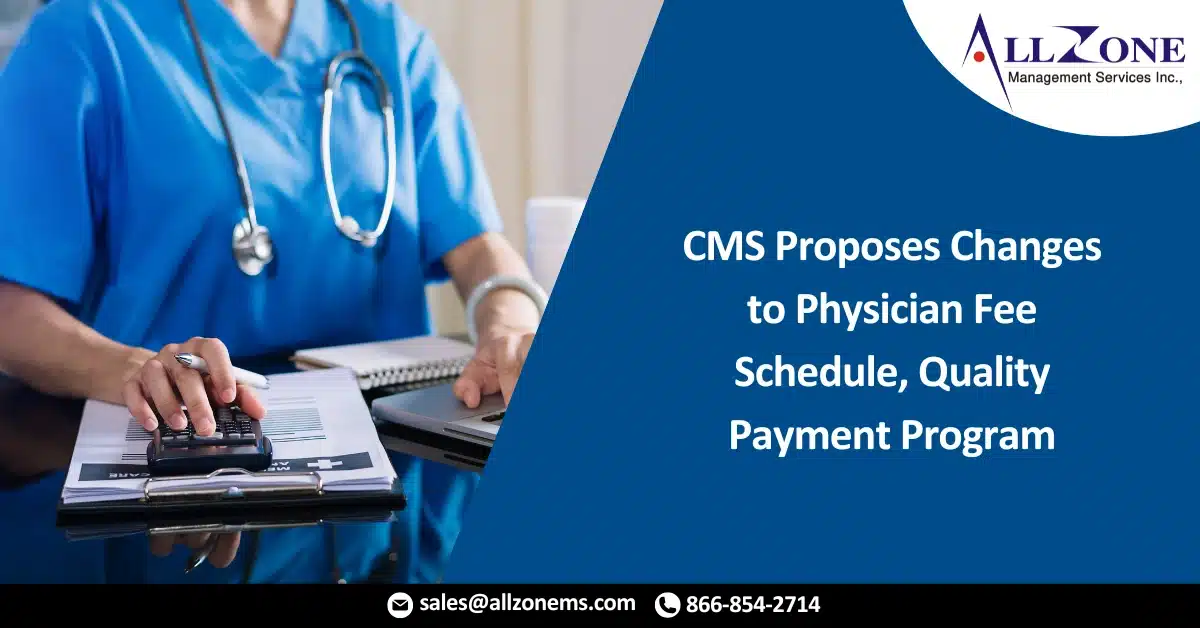The Centers for Medicare & Medicaid Services (CMS) is proposing changes to the Medicare Physician Fee Schedule (PFS) and the Quality Payment Program as part of its effort to reduce provider burden. “Clinicians are drowning in paperwork and reporting requirements caused by cumbersome government rules and regulations,” said CMS Administrator Seema Verma in a press […]
Multiple Surgeries Multiple surgeries are separate procedures performed by a physician on the same patient at the same operative session or on the same day. Multiple surgeries are distinguished from procedures that are components of or incidental to a primary procedure. Intraoperative services, incidental surgeries or components of surgeries will not be separately reimbursed. Reimbursement […]
An Ambulatory Surgical Center Payment System (ASC PS) update that took effect July 1, 2019, changes billing instructions for various payment policies and codes. Here is what you need to know to properly bill Medicare for these services and supplies. New CPT Category III Codes Effective July 1, 2019, the Centers for Medicare & Medicaid […]
For some coders, confusion exists when Critical Care Coding for critical care services. Code 99291 is used for critical care, evaluation, and management of a critically ill or critically injured patient, specifically for the first 30-74 minutes of treatment. It is to be reported only once per day, per physician or group member of the same specialty. […]
Chronic care management (CCM) has an overarching clinical goal—improving the health of Medicare patients with multiple chronic conditions. Besides knowing the service parameters, pay rates and usage requirements for CCM codes, physicians must understand how to effectively bill for CCM in order to profitably achieve that goal. Medicare pays for CCM (typically, non-face-to-face) services to […]
The Centers for Medicare & Medicaid Services (CMS) has removed two Healthcare Common Procedure Coding System (HCPCS Codes) codes just days before the bid window opens. Codes E0992 and K0056 have been dropped from the standard power mobility devices product category as they are only applicable to the standard manual wheelchairs product category. Due to […]
The Centers for Medicare & Medicaid Services (CMS) released on June 20 the new ICD-10-CM codes descriptions, tables and index, and addendum for fiscal year 2020. There are 273 additions, 21 deletions, and 30 revisions, effective Oct. 1, 2019, which will increase the code set from 71,932 to 72,184 diagnoses. Chapter Review The majority of changes to new […]
Artificial intelligence (AI) is making big waves in healthcare from detecting lung cancer and gene mutations that lead to autism to addressing social determinants of health and chronic conditions. The technology is automating and optimizing clinical workflows, leading to improved outcomes, lower costs, and enhanced patient and provider satisfaction. The critical role artificial intelligence now plays in healthcare prompting some providers to […]
Blockchain has taken the shape of an important asset in the 21st century with applications starting from practitioner’s authentication to supply chain management. The abilities of the robust privacy and interoperability of blockchain can change the healthcare space and improve the wide range of needs in healthcare. Blockchain provides a reliable and standard chain of […]
Medical coders who were unsure what documentation non-Medicare payers would expect in light of the Patients Over Paperwork Initiative now have more to go on. The initiative reduced documentation requirements for outpatient evaluation and management service codes (CPT® 99201-99215) provided to Medicare Part B patients beginning in 2021. The Centers for Medicare & Medicaid Services (CMS) indicated in their initiative that, although […]









